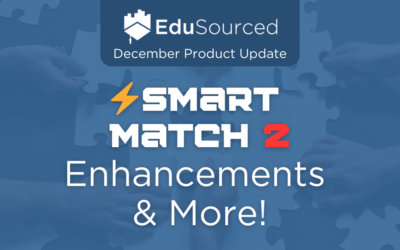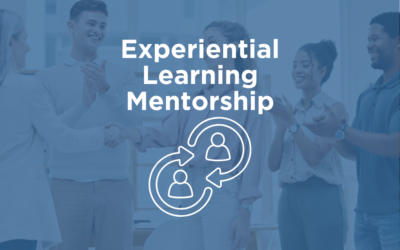Working remotely has always been the default for experiential project-based learning. This post describes how experiential projects serve as a remote internship and may be an ideal alternative to internship programs given the need for social distancing with COVID-19.
Conventional internships require students to work on-site at an employer’s facilities and, as the world adjusts to COVID-19, something so common has become unthinkable in light of quarantine and social distance. Today we spoke with a small private school whose Career Center has long operated a managed internship program, the kind where faculty oversee students’ internship work.
The challenge this school is facing is newly common: how to prepare students with work experience when they are unable to work on-site with employers. Understandably, this school is looking for alternatives to an internship model that has worked for them for so long.
Experiential project-based learning, the variety of experiential the EduSourced software platform is optimized for, is basically a team-based remote internship. Like internships, experiential projects involve an employer, (the “client”) typically a private company but it could be local nonprofit or even a department within the university (anyone with a project relevant to the academic discipline at hand and a need to complete it). Unlike internships, students almost always work in teams of 3 to 7 students on this project. This teamwork model provides soft skills development that can only be had by working within a team toward a shared goal.
Remote work is the default for experiential projects. Aside from a couple hours per week of in-person student work or team meetings, participants usually work remotely. The project clients are usually only available to meet face to face once or twice during the project, relying on online tools and meetings the rest of the time. This was before COVID-19. The small amount of in-person work that was common before is readily replaced with online meetings and collaboration tools like EduSourced.
In addition to a variety of collaboration tools for students and oversight tools for faculty and program directors, EduSourced has two new enhancements currently in development:
Project Health: remote check-ins from students, clients, faculty and team mentors indicate if a project is on-track, at risk or in need of immediate intervention. Identifying team and project issues early is key to a successful outcome.
Zoom Integration: Students, clients, faculty and mentors can securely launch and manage web-conferences, including video with their team securely inside EduSourced. No extra Zoom license needed!
Regularly scheduled check-in calls between the teams and faculty and the teams and their clients replace keep projects moving on track and replaces on-site time. What remains is all the real-world exposure of an internship coupled with teamwork skill development and a format that is ideal for remote work scenarios.
Experiential team projects can be done either as part of the curriculum or outside of it, like internships. They can be managed by an academic department, faculty, a Career Center or an experiential program director depending on your needs and capacity. For more information about experiential program bench-marking, check out our 2019 experiential survey results or review our Experiential Learning Fieldguide.
If you would like to learn how EduSourced can help you transition to remote projects, schedule a demo with us.




